Three Russians carrying press cards were killed on Monday, July 30 near Sibut in the Central African Republic, reports and the United Nations mission in the country said on Tuesday.
Their corpses were found on a road 23 km (14 miles) from Sibut after apparently being killed at a roadblock by unidentified men, an investigator told AFP.
Radio Ndeke Luka reported official sources as saying the three arrived in the capital Bangui on July 27.
The three “were taken hostage in their vehicles before being killed” by an unidentified armed group in Baku village, around 20 km from Sibut in the direction of Dekoa, RJDH reported a military source as saying.
The source added that no other documentation was found on the bodies other than their press cards.
The three men were identified by Russian media reports as prominent journalists Orkhan Gemal, Alexander Rastorguev and Kirill Radchenko.
Russia’s foreign ministry said in a statement that three people with identification documents belonging to Gemal, Rastorguev and Radchenko had been found dead, Reuters reported.
According to a Russian TV station, they were in CAR to make a documentary about the Russian private military contracting company Wagner.
Radio Ndeke Luka reported the three were in a 4×4 vehicle driven by a local when they were stopped by internal security forces when they attempted to leave Sibut around 6 p.m.
However, AFP reported a religious source as saying they were driving back from the northern town of Kaga Bandoro.
 Sibut MP Marcelin Yoyo told the radio station that “the security forces in charge told them not to go because it is already dark. They insisted and left.”
Sibut MP Marcelin Yoyo told the radio station that “the security forces in charge told them not to go because it is already dark. They insisted and left.”
Yoyo claimed that it was “between the villages Kene and Kpakou, 24 km from the city of Sibut, that they were kidnapped by about 10 malefactors, all turbaned and who spoke only Arabic.”
“The three Russians were murdered on the spot. The driver fled and informed the authorities about 5 a.m.,” Yoyo added.
Yoyo said “the gendarmerie of Sibut” recovered the bodies.
However, a spokesperson for the U.N. mission in CAR confirmed that peacekeepers had recovered the bodies.
“The three bodies were recovered by Minusca peacekeepers in Sibut after they were informed by locals of their presence and then taken to Minusca level 1 hospital in that city,” Minusca spokesperson Vladimir Monteiro told The Defense Post. “Since then, they have been transported by national authorities to Bangui to a local hospital.”
Monteiro said they did not contact Minusca, nor were they accredited by Minusca media relations “but this is not uncommon.”
“A lot of journalists travel to CAR but never contact Minusca unless they plan to cover Minusca activities. In this case, we assist with our flights to the area they plan to report,” Monteiro added.
A Russian security official reached in Bangui told AFP that Russia’s representatives in the CAR were not aware of the presence of any journalists from their country.
Update August 2 In an August 1 statement on television, government spokesman Ange Maxime Kazagui said the three were shot dead at a roadblock by a nine-man group who “wore headscarves” and did not speak in French or Sango, two common languages in CAR.
One of the journalists violently opposed the armed men, who wanted to steal their equipment, Kazagui said, adding that one of the journalists died instantly and the two others died of their wounds.
The details came from their driver, who was wounded but survived, he added.
Moscow is a close ally of President Faustin Archange Touadera, and has provided support for his government in the form of weapons and military and civilian advisors.
Dozens of Russian PMCs have emerged over the last several years, although many are short-lived. One of the most prominent is Wagner, started by a former lieutenant colonel of the 2nd Spetznaz (Special Forces) Brigade of the Russian Main Intelligence Directorate (GRU). Wagner was active in Syria before moving into CAR.
CAR militias
It is unclear who killed the three Russian men, but a number of militias are active in the Central African Republic.
Touadera’s weak government controls around a fifth of the country and relies heavily on Minusca for support. The rest is controlled by at least 14 different militia groups – the mainly Christian anti-Balaka in the southwest and mainly Muslim ex-Seleka in the northeast – who often fight each other for control of revenue from extortion, roadblocks or mineral resources.
On April 23, Touadera told the U.N. he wants to “accelerate” the disarmament of members of armed groups in CAR, and for Minusca’s mission to transition from peacekeeping to peace enforcement.
The ex-Seleka armed group Union for Peace in the Central African Republic (UPC) is believed to be behind a series of June incidents in Bambari that killed a Minusca peacekeeper and injured a CAR Armed Forces (FACa) soldier.
The council imposed an arms embargo on CAR in 2013 when the country descended into bloodshed.
CAR’s leaders have repeatedly asked the U.N. Security Council to ease the embargo to allow shipments of equipment that will beef up the national forces.
In December, Russia was authorized by the U.N. to provide the CAR armed forces with weapons and training as exemption to the arms embargo imposed at the outbreak of the conflict in 2013.
On June 14, France, the United States and the United Kingdom put a hold on a request for weapons shipments from China.
The Security Council in January unanimously extended its sanctions against CAR until January 31, 2019.
According to a July 23 report for the Security Council by the Panel of Experts on the Central African Republic, Russian instructors are deployed in Sibut in support of the FACa.
The European Union on Monday extended its own CAR training mission and modified its scope to include strategic advice to Touadera’s cabinet, interior ministry and police, as well as the military.
The president’s own security advisor is a Russian.
In May, Touadera met President Vladimir Putin at an economic gathering in St. Petersburg, where he thanked the Russian leader for Moscow’s help during “a difficult humanitarian situation” and “in the process of the country’s consolidation and reconciliation.”
Earlier this month, Russia tried to set up a meeting in Sudan to mediate between the government and the militias, government sources say. Touadera’s office said the Russian initiative was dropped as “the head of state believes there is no cause to engage in other processes while the African Union one is still under way.”
This week’s U.N. Security Council report says that on June 10, a FACa convoy accompanied by Russian instructors passing through Bambari on their way to Bangassou was attacked by UPC fighters. Two FACa soldiers and a Russian instructor were injured. Minusca then facilitated a meeting between the Russian delegation and UPC leader Ali Darassa on June 17 to obtain guarantees for the safe passage of the convoy, which finally reached Bangassou on June 22.
According to Minusca, a FACa convoy attacked by the UPC in an that incident consisted of 134 FACa soldiers and their 16 Russian advisors.
The UPC is reportedly among other ex-Seleka militias that have been gathering in northern town of Kaga Bandoro since early April, threatening to move on the capital, Bangui.
The ex-Seleka group threatened to march on Bangui after Minusca and Central African forces launched Operation Sukula in the capital. The “disarmament and arrest” action targets armed “self-defense” groups comprised mainly of ex-Seleka fighters in the mainly Muslim PK5 neighborhood. Minusca considers the groups criminal.
On May 4, Minusca deployed an Mi-35 attack helicopter in an operation to defeat what it said was an FPRC “infiltration” attempt near Dekoa. According to Minusca, the ex-Seleka militia were attempting to move south towards Bangui via Sibut.
Later that month, Minusca Force spokesperson Major Séraphin Embondza said that an “operation to secure the Kaga Bandoro-Dékoa-Sibut axis to prevent any movement” of ex-Seleka militias to the south was continuing.
Joanne Stocker contributed reporting.
This post was updated on July 31 with information about a Russian foreign ministry statement, and again on August 2 with a statement from CAR government spokesperson.

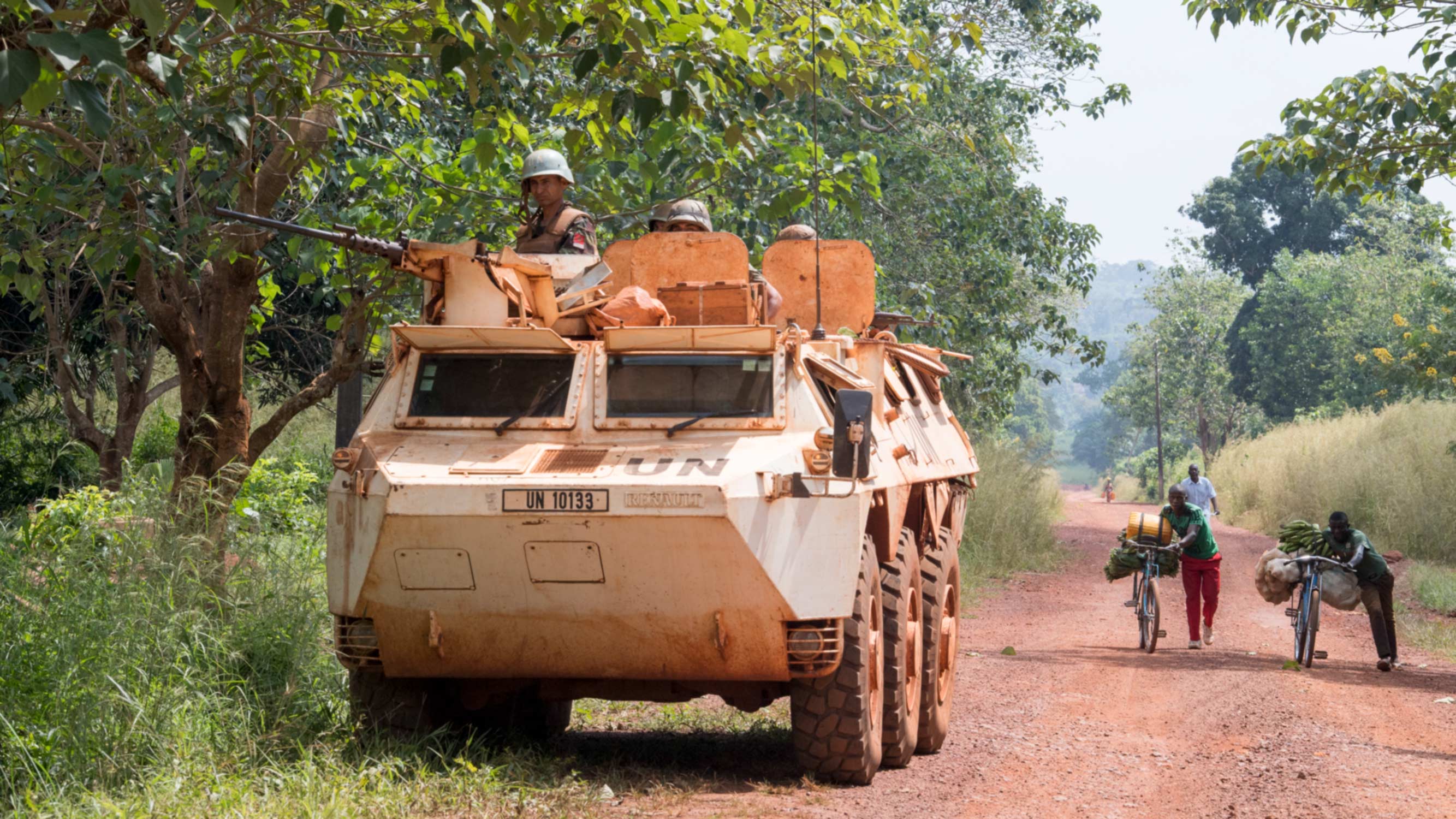
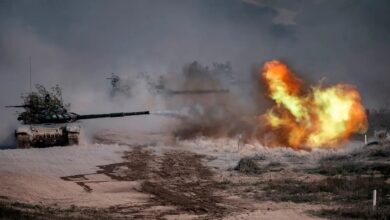
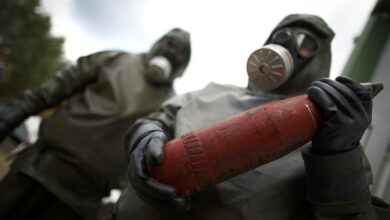
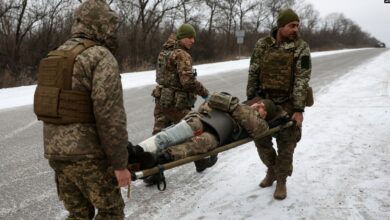
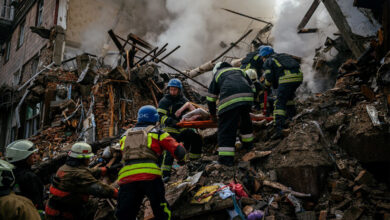

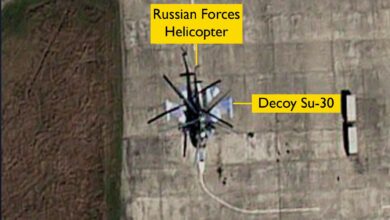
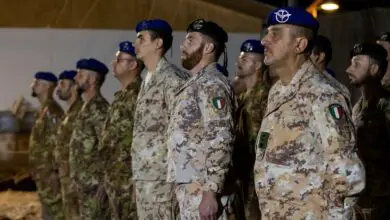
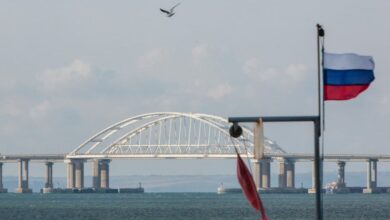
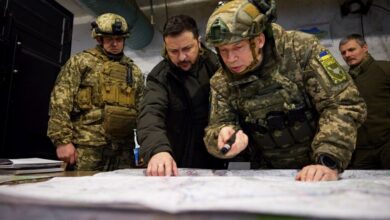

4 Comments